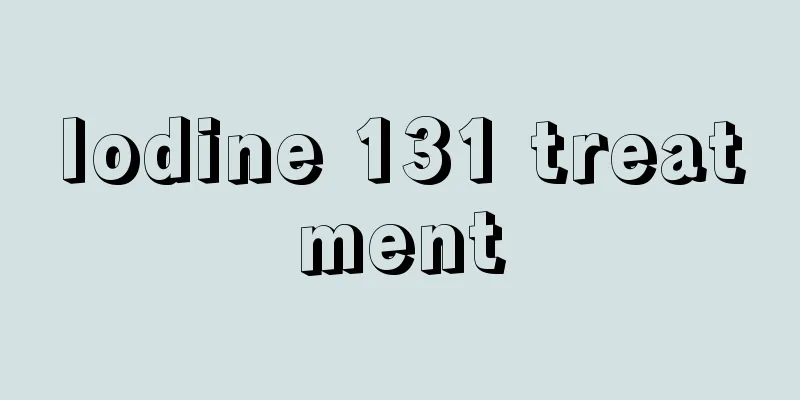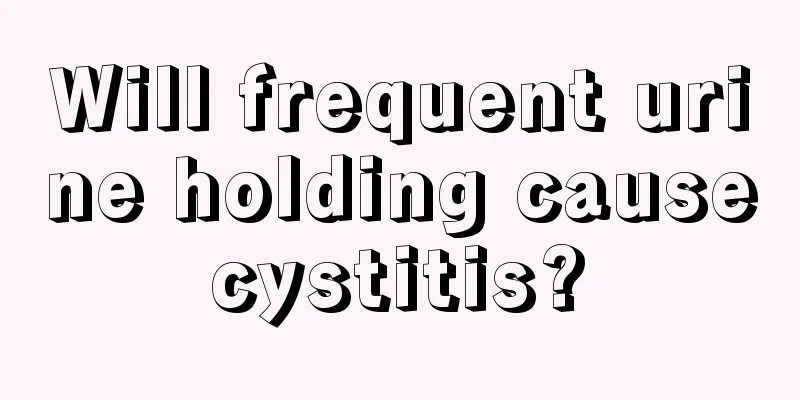Iodine 131 treatment

|
When we see iodine 131, the first thing that comes to mind is the isotopes of iodine in chemistry. Iodine 131 is one of the isotopes of iodine. In fact, iodine 131 is the same as iodine. Iodine is the most taboo for patients with hyperthyroidism because it will make the condition of patients with hyperthyroidism worse. Iodine 131 is also a highly toxic radionuclide and excessive inhalation can cause great harm to the human body. In many areas of China, radioactive substances are often found. When the government discovers trace amounts of radioactive iodine 131 in certain areas, residents in that area will become panic-stricken. In fact, doctors have long stated that inhaling trace amounts of radioactive substances will not affect human health. Residents should not listen to rumors casually. In fact, it is because people do not understand iodine-131 treatment. 1. Most patients have no adverse reactions after iodine-131 treatment of hyperthyroidism. A few have mild reactions such as fatigue, loss of appetite, and nausea within a week, which usually disappear within a few days. After taking iodine [131I], the radiation destroys the thyroid tissue and releases a large amount of thyroid hormone into the blood. About 2 weeks after taking iodine [131I], symptoms of hyperthyroidism may worsen, and some patients may even develop thyroid crisis. The reason may be that a large amount of thyroid hormone is released into the blood under the action of ionizing radiation, as well as mental stimulation, infection, etc. ⒉ The most important complication of iodine-131 treatment for hyperthyroidism is permanent hypothyroidism. The longer the time after treatment, the higher the incidence rate. The incidence rate abroad increases by about 2%-3% each year, and in China it is about 1.0%. ⒊ Iodine-131 is used to treat thyroid cancer metastases. Due to the large dose, the following adverse reactions may occur: gastrointestinal reactions (nausea and vomiting), transient bone marrow suppression, radiation sialadenitis, acute thyroid crisis, neck pain and swelling, pain when swallowing, throat pain and cough may occur about 3 days after treatment, painkillers are often not effective, and temporary hair loss may occur 2-3 months after treatment. Some people are very afraid of radioactive substances. In fact, this is not the case. Take the Japanese nuclear leak as an example. Only people who have close contact will cause serious infection. Of course, China will also be affected by the monsoon, which will bring some radioactive nuclides to Chinese soil, causing a series of effects. However, the half-life of many radioactive substances is very short and they do not have much impact on the human body. |
Recommend
Eat too many crabs
In our lives, crabs are a very common delicacy. M...
How to remove blackheads on both sides of the nose
Due to some modern concepts, more and more people...
Which kidney-tonifying medicine is more effective?
Faced with the increasingly tense pace of life an...
How much is the baby's weight and height at 40 days?
When the baby is 40 days old, that is, shortly af...
Be alert to extrapulmonary symptoms of lung cancer
According to statistics, about half of lung cance...
How to relieve body aches after drinking
Drinking is a tradition in China. Many people mus...
Pathological types of cervical cancer
Most invasive cervical cancers develop from cervi...
Is lymph node metastatic cancer serious? Let's take a look
Cancer is very harmful to patients. Many cancer p...
How much does it cost to treat cervical cancer
Nowadays, many friends suffering from cervical ca...
What is the reason for headache after hair drying
I believe that many people have experienced the d...
Nasopharyngeal cancer patients do not need to avoid certain foods, but they should eat fresh food
The key points of the diet for patients with naso...
Effective way to remove wrinkles and give you younger skin
The traces of time will always remain on people&#...
What are the causes of dull pain in the right abdomen
The right abdomen is where the liver is located. ...
The efficacy of drinking water soaked with Astragalus, Hawthorn and Wolfberry
Drinking water soaked with astragalus, hawthorn a...
After getting cancer, will I get other cancers again?
If a person has had cancer once, will he or she g...









